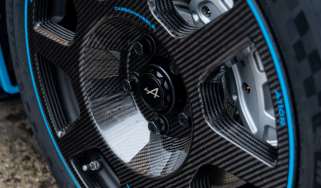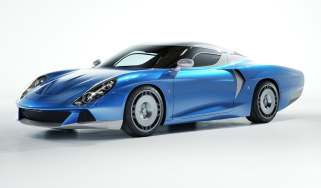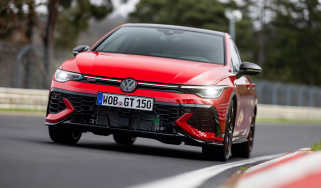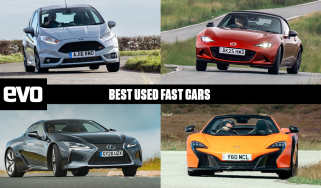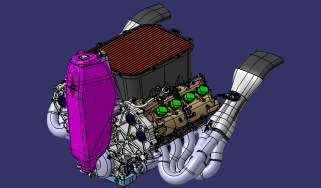Alpine is using hydrogen to keep the combustion engine alive
Alpine is set to become an all-electric manufacturer, but as hydrogen development continues, it’s not ruling out a return for the combustion engine
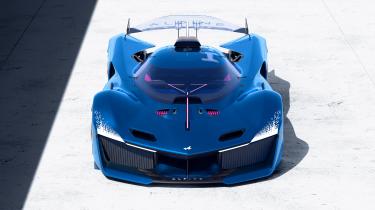
When the A110 bows out of production next year, Alpine will be an electric-only manufacturer. Its first EV, the A290, has already gone on sale, and there are more to come – including the A390 fastback SUV, an electric A110 replacement and a 2+2 coupe. But though Alpine’s immediate future will be battery powered, it isn't ruling out the possibility of combustion engines making a comeback. The brand has previously confirmed that hydrogen power is being considered for its forthcoming halo supercar, and there’s a chance that hydrogen combustion engines could feature in future mainstream models.
Speaking to evo, design boss Antony Villain said that while upcoming models like the electric A110 haven’t been designed to accommodate a combustion engine, it isn’t out of the question for future generations to use hydrogen tech. ‘The problem at the moment is fuel storage,’ he said. ‘For the equivalent of 50 litres of petrol you need 150 litres of hydrogen gas, so packaging that in the car is a challenge. The second issue is where you would refuel your car with hydrogen. But technically speaking, it’s possible, and going to liquid hydrogen could reduce the storage problem. We’ll develop it first in racing for Le Mans, and when we have the infrastructure, this could be relevant for road cars. The next A110 will be EV, but after that we’re not closing the door to ICE opportunities.’
Alpine has already explored the technology with its Alpenglow Hy6 prototype. Rather than an electric powertrain with hydrogen fuel cells, the Alpenglow has an internal combustion engine that runs on hydrogen gas, delivering similar sounds and sensations to a proper petrol engine. The Hy6’s unit is a 9000rpm V6 with 740bhp, and while it’s pitched as a preview of what’s possible with hydrogen in motorsport, there’s sure to be some development crossover with road-going applications.
Speaking of which, Alpine confirmed previously that hydrogen power is being explored for its upcoming halo supercar, which will launch by the end of the decade. CEO Philippe Krief said:
‘This [a supercar] is something we’re working on really seriously. Our biggest challenge is to make the brand known, and having a supercar is very important. Then, we want to include new technologies [in our supercar] – as Alpine we are kind of a front-runner, which could also be interesting beyond pure electric.’
On the latter point, Krief confirmed that the brand is ‘open’ to using a hydrogen combustion engine, but conventional electric power could also be under consideration. Last year Alpine opened a new research and development centre in Viry-Chatillon, France, which is developing solid-state batteries for ‘supercar-type’ applications. Krief suggested that with suitable (i.e. lighter and more energy-dense) battery tech, an electric supercar could potentially deliver a rich and involving driving experience.
‘Of course, there’s no doubt about the performance from electric supercars. But driving pleasure, sensation, being able to use it every day; this I haven’t seen,’ he said. ‘I think it’s more a question of interpretation and execution rather than a conflict between the two [EVs and supercars].’


